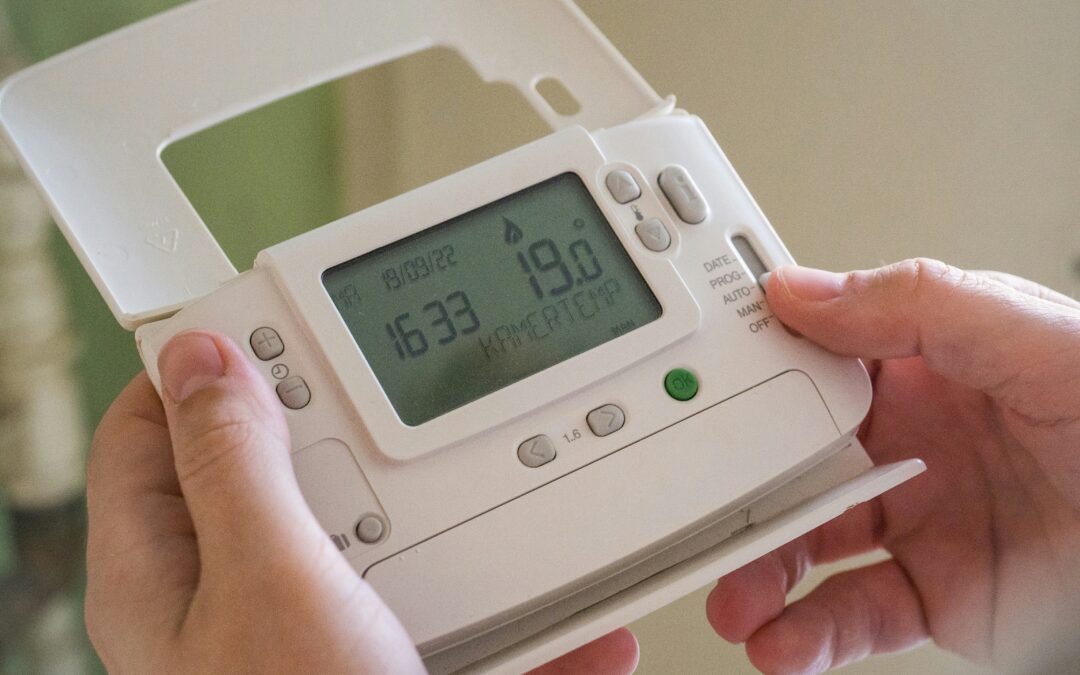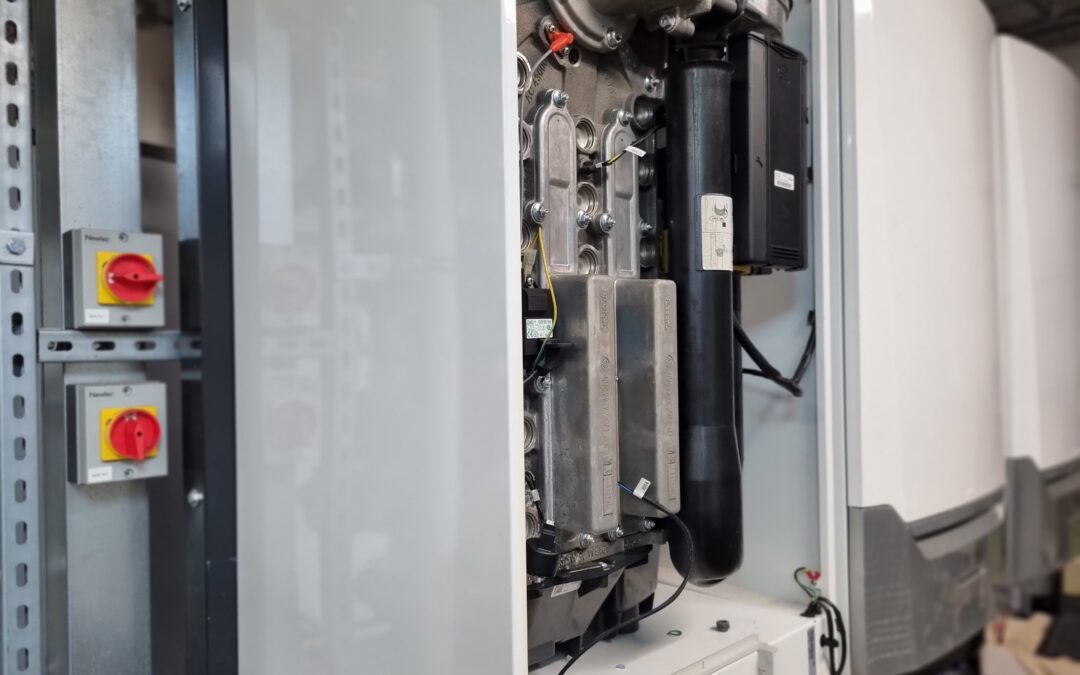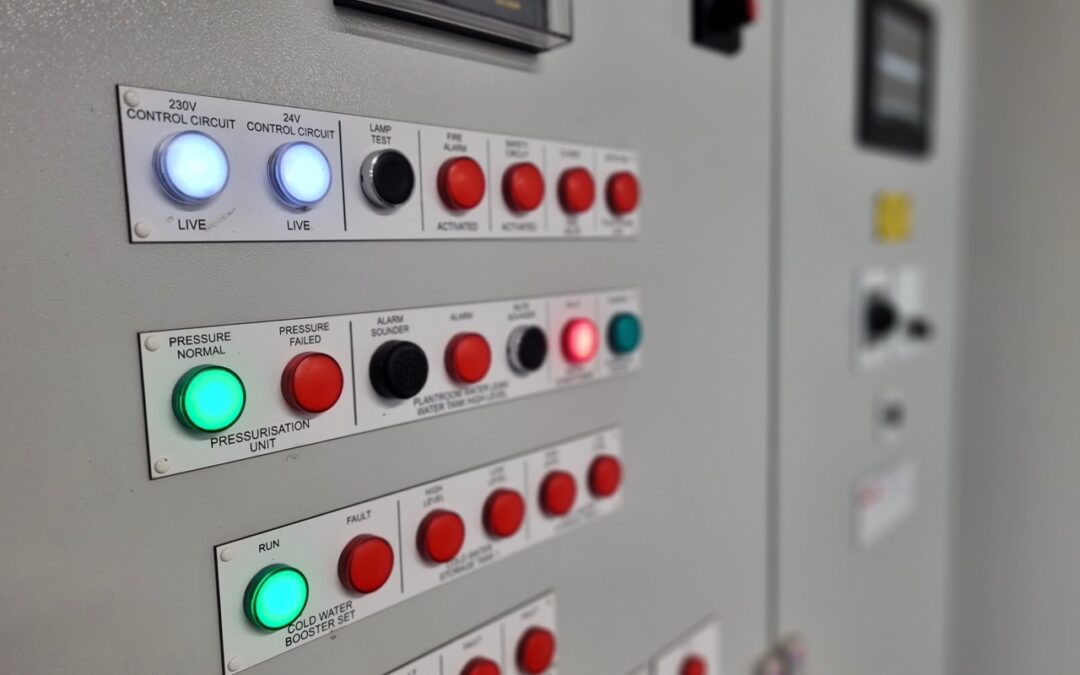In this day and age, it’s crucial to be mindful of your building’s energy efficiency. Expensive bills and the damaging environmental effects of using too much energy highlight the importance of improving your business’s footprint. In this blog post, we’ll showcase some of the benefits of integrating a building management system into your building.
What is a BMS (Building Management System)
A Building Management System is a computer-based control system that allows you to manage and monitor a building’s mechanical and electrical equipment, such as HVAC, lighting, security, and more.
As well as this, the use of a BMS allows the optimisation of energy usage based on settings and schedules, such as adjusting HVAC and lighting based on how many people are in your building and the time of day. This allows you to improve the efficiency of your building, while not needing much (or any!) human input.
Heating & cooling management
A BMS optimises your building’s heating and cooling by controlling HVAC systems based on real-time data and predefined working schedules. By adjusting temperatures and air conditioning according to outside weather conditions and how busy your building is, a BMS can improve comfort while minimising energy consumption.
By monitoring and managing HVAC equipment performance, the BMS reduces wear and tear, extends the lifespan of HVAC systems, and lowers your overall maintenance costs.
Energy supply management
A Building Management System can efficiently manage the energy supply in your commercial building(s) by monitoring and optimising your fuel, gas or electric energy usage across various systems within your building. It can prioritise energy distribution to essential functions while reducing consumption elsewhere during peak energy use.
Additionally, a BMS can seamlessly integrate and manage renewable energy sources, such as solar panels, by tracking their energy production levels and adjusting building operations to maximise their use. By balancing traditional energy supply with renewable sources, the BMS enhances energy efficiency, reduces reliance on non-renewable energy, and supports your business sustainability goals.
Plumbing & water management
Building Management Systems optimise plumbing and water management by monitoring and/or controlling your building’s water supply, usage and quality.
By providing real-time data and alerts through your phone or other device, the BMS helps prevent water wastage, reduces the risk of water damage and maintains the overall health of your building’s plumbing.
Security & property access
A BMS can significantly enhance security and improve property access by integrating with security systems such as CCTV, alarms, and access control mechanisms. This allows for real-time monitoring and management of building entry points, ensuring only authorised personnel have access. The BMS can automate security protocols, such as locking doors after closing and activating alarms at night to prevent break-ins.
Fire safety
A BMS can enhance fire safety in your building by working alongside fire alarm and suppression systems to provide fast detection and rapid response to fire incidents.
By monitoring smoke detectors, sprinkler systems, and emergency lighting, a BMS has a great understanding of what’s going on in your building at all times.
In the event of a fire, the BMS can automatically control HVAC systems to prevent smoke spread, unlock emergency exits, and provide real-time alerts and information to emergency responders, improving overall safety and evacuation efficiency.
Technological advancements
Technological advancements in Building Management Systems in recent years have significantly improved their overall capabilities. Below are two of the areas in which we’ve seen significant progression in:
AI/machine learning integration
Integration with AI and machine learning can help optimise energy usage and even predict when a component is likely to fail or need maintenance. This area is likely to grow in the future, with advancements in AI and machine learning technology.
Cloud computing
Cloud computing offers remote access and management, and advanced analytics provide useful insights about how and when your building uses the most energy. Wireless systems can further simplify your end-user experience, with mobile interfaces allowing for remote monitoring.
With computing taking place off-site with the power of cloud computing, your BMS could be updated over the internet to receive newer features that improve energy efficiency or user experience.
Find out more
If you want to find out more about how much a BMS will cost your business, or if you’re just interested in learning more about how a BMS can help your business save money, get in touch with us today! Our team is highly knowledgeable and is always more than happy to answer any questions you may have.
View More Posts

The Role Of A Thermostat In Your HVAC System
HVAC systems have evolved over the past few decades, though one of the biggest areas of...

The Benefits Of Zone Heating For Homes And Offices
In the modern world, technology is constantly changing to improve personal comfort and energy...

How To Improve The Efficiency Of Your Heating System
Whether you’ve had a new heating system installed recently, or you have an older heating system...
Discuss your requirements with a company that cares.
Contact Lindsey Group today.



